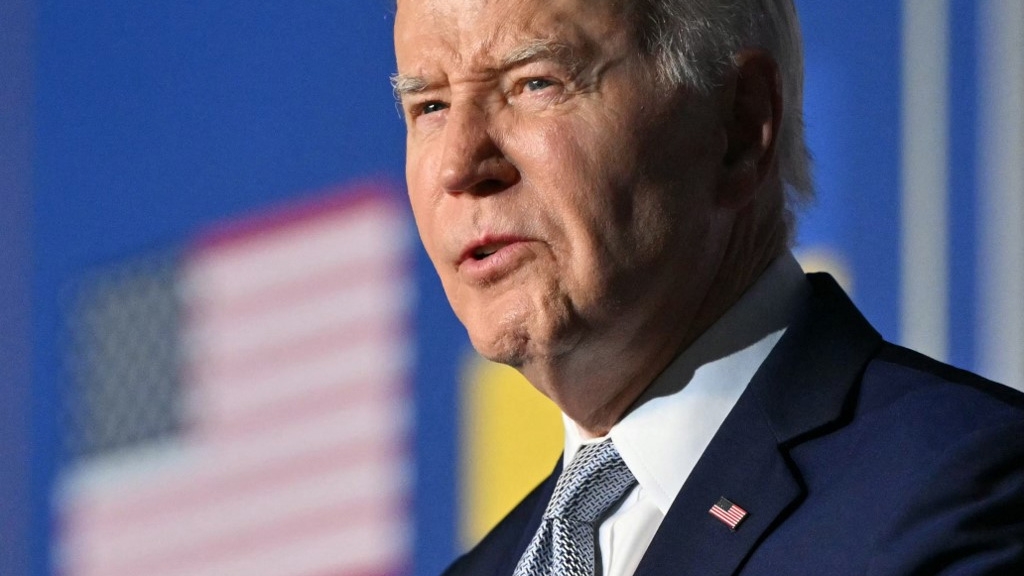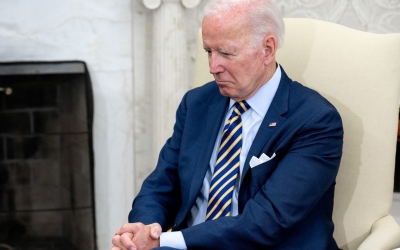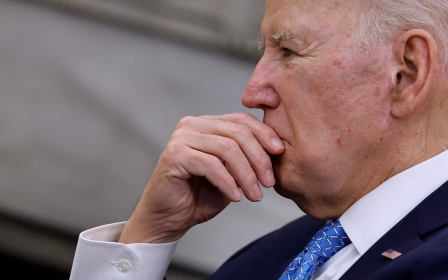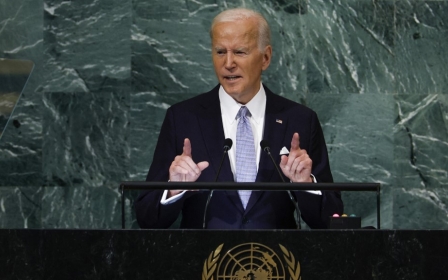Why the G7 can no longer pretend to rule the world

G7 leaders gathered last week in a luxurious resort in Apulia, Italy, to pretend that they were confidently managing an increasingly challenging world characterised by “multiple interconnected crises” - and doing so through a set of universal rules that they conceived, and exclusively interpret and implement.
Nothing could be further from the truth.
The G7 narrative is one that an increasing number of countries around the world struggle to believe. Politically speaking, most of these seven leaders are at best lame ducks, or at worst, dead men walking. G7 might as well stand for Ghosts of Seven.
In their final communique, these leaders reiterated their “shared belief in democratic principles and free societies, universal human rights, social progress, and respect for multilateralism and the rule of law”. They committed to “providing opportunities and pursuing shared prosperity … [and to] seek to strengthen international rules and norms for the benefit of all”.
They also solemnly reaffirmed their commitment “to respect the UN Charter, safeguard international peace and security, and uphold the free and open rules-based international order”, and to “support more effective, inclusive and equitable global governance that reflects our changing world”.
New MEE newsletter: Jerusalem Dispatch
Sign up to get the latest insights and analysis on Israel-Palestine, alongside Turkey Unpacked and other MEE newsletters
By carefully watching the behaviour of some G7 members in recent decades, and especially since 7 October, these enunciations ring hollow, to say the least.
They stuck to their high principles on the Russia-Ukraine war, to which they dedicated the biggest single part of their communique, but became ambiguous and inconclusive about the ongoing slaughter in Gaza, where the number of victims is far higher and - an even more serious circumstance - is caused by Israel, the “only democracy in the Middle East”, as described by G7 members.
Resounding contradiction
On Ukraine, the G7 is stretching its claimed “respect” for the UN Charter and risking the credibility of the international financial system by “leveraging the extraordinary revenues of the immobilized Russian sovereign assets” to provide $50bn to Kyiv.
G7 members also sound chillingly warlike when they tout their “collective efforts to disarm and defund Russia’s military industrial complex”. In Moscow, this can only be interpreted as a clear affirmation that Russia must be made unable to defend itself. Was it necessary, while the risk of a global war simmers, to put such words in the G7’s final communique?
Follow Middle East Eye's live coverage of the Israel-Palestine war
On the contrary, when it comes to Gaza, terrified by the potential Israeli government reaction, the G7 has not lifted a finger to apply even some of the standards it is so zealously applying to Russia.
The G7’s claimed respect for the UN Charter and commitment to “uphold human dignity and the rule of law in all parts of the world” is resoundingly contradicted by the attitude these countries have taken towards the Gaza crisis over the last eight months.
G7 members need to wake up and emerge from the intellectual bubble, detached from reality, where they are self-isolating
The communique demonstrates this massive double standard, showing how other G7 members have fully subscribed to the (fundamentally mistaken) US narrative on the Israel-Palestine conflict.
The portion dedicated to Gaza begins by reiterating the G7’s “strongest condemnation of the brutal terrorist attacks conducted by Hamas and other terrorist groups against Israel on 7 October 2023” and its “full solidarity and support to Israel and its people”, together with an “unwavering commitment towards its security”.
While the communique condemns Hamas for failing “to separate and distinguish itself from civilians in Gaza”, it does not reserve one single word of blame for Israel’s massive failure to distinguish between Hamas and civilians in its own military operations, which have killed almost 40,000 Palestinians - a level of destruction to which the Ukraine war pales in comparison.
The only words reserved for Israel are that it “must fully comply with its obligations under international law” - but no consequences are attached if such obligations are not respected, as is overwhelmingly the case.
Deafening silence
The hypocrisy does not stop there. The communique uniquely calls on Hamas “to fully and unequivocally accept and implement the ceasefire proposal, as outlined in Resolution 2735” - when, as has been correctly observed, Hamas is closer to accepting the deal presented by US President Joe Biden than Israel is.
While expressing “firm condemnation of Iran’s attack against Israel of 13-14 April”, the communique is deafeningly silent on the Israeli attack on the Iranian consulate in Damascus a few days earlier.
On another major trouble spot, the Indo-Pacific region, the G7 recognises the importance of China and reaffirms the search for constructive and stable relations. It urges Beijing to cooperate in addressing global challenges, while denying any goal of harming China or thwarting its economic development. Such words, however, are not matched by deeds, considering new sanctions and tariffs adopted by the US and EU against Beijing. In the best case, they will not work; in the worst, they will backfire.
The G7 communique also misleads the international community by presenting tensions in the South China Sea as exclusively originating from Beijing’s actions, when there are competing and overlapping claims to the territory among several other regional nations.
Attendance at the G7 summit by some Brics members, including Brazil and India, has fuelled the belief among some that competition in the Global South is still open. They are deluding themselves.
China is becoming the Global South’s reference power, and trade flows seem to confirm this trend. If the G7 continues to weaponise its financial power and the US dollar, then sooner or later, an alternative or parallel financial system may emerge - and one of the pillars of US global power since World War Two will be further eroded.
G7 members need to wake up and emerge from the intellectual bubble, detached from reality, where they are self-isolating - because at the moment, they are not just ghosts, but also sleepwalkers moving towards the brink.
The views expressed in this article belong to the author and do not necessarily reflect the editorial policy of Middle East Eye.
Middle East Eye delivers independent and unrivalled coverage and analysis of the Middle East, North Africa and beyond. To learn more about republishing this content and the associated fees, please fill out this form. More about MEE can be found here.






